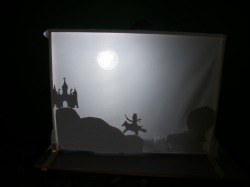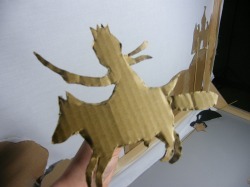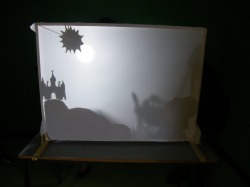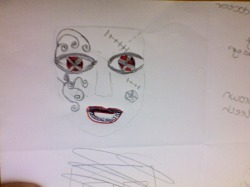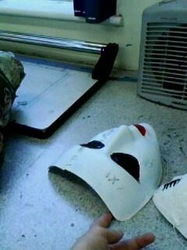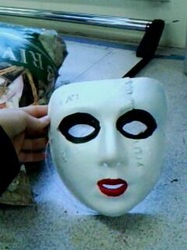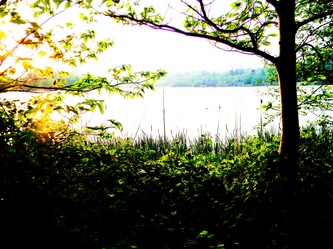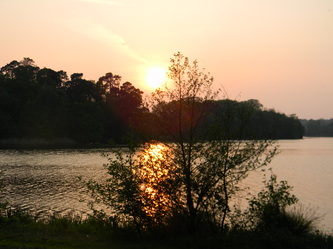Creative and media diploma
Georgia Alice Addis
unit 1
LO.1
Be able to apply skills needed by those working in the creative and media sector.
LO.2
Know how to carry out basic out basic research in the creative and media sector.
LO.3
Know some job roles and career paths in the creative and media studies.
LO.4
Be able to apply skills required to enable effective learning and thinking.
LO.1
Be able to apply skills needed by those working in the creative and media sector.
Jobs in the creative media career:
actors : many actors list additional skills and interests on their cv, This list is important to casting directors. For example of an actor need to be able to horse ride for a scene ,its normal too short of notice for lessons so actor thats have horse riding on their cv are most likely to make it for a audition. They need lots of extra curricular activities and interests .
professional companies within industry carry out skill audits ,this allows them to see the skill that their employees have and what skills they may need to develop to ensure the company remains competitive in the future .
actors : many actors list additional skills and interests on their cv, This list is important to casting directors. For example of an actor need to be able to horse ride for a scene ,its normal too short of notice for lessons so actor thats have horse riding on their cv are most likely to make it for a audition. They need lots of extra curricular activities and interests .
professional companies within industry carry out skill audits ,this allows them to see the skill that their employees have and what skills they may need to develop to ensure the company remains competitive in the future .
What type of learner am i ?
i believe myself to be a visual learner . I like to see things written down , i prefer looking at pictures , and making notes . I like to see things written and broken down in notes and i also enjoy looking at drawings.
My skills gained
how i have improved
Camera skills
I am now able to use a camera correctly , i know different angle's i may use when filming for example the dutch angle .I know how to correctly upload footage or photo's from a camera .
Computer skills
I now understand how to use a apple mac , and how to used the software's available .
Art & design
I have can now plan and design my own creative art pieces .using technology for example , i am able to design using a software and then create my design by hand.
Performing
I am now able to prepare myself before a performance and perform confidently without using a script . I also now know about stage set up and how to work lights and sound during a performance .
Media production
I can now use programmes such as final cut-pro , garage band , photoshop.
Personal evidence of my skills
^^^^ art and design ^^^^
^^^^ camera skills ^^^^
^^^^ filming and computer skills ^^^^
^^^^ media production ^^^^
LO.2
Know how to carry out basic out basic research in the creative and media sector.
The creative media industries are vital to the UK's economic success, as well as to the quality
of our society and our lives. In terms of Gross Value Added, they account for over 5.6% of total UK output.They rely on a predominantly highly-skilled workforce. The skills of the workforce need to remain world class for the industries to stay competitive. That's why it's vital for the views of employers and the self-employed to be heard, so that skills gaps and shortages are identified.
of our society and our lives. In terms of Gross Value Added, they account for over 5.6% of total UK output.They rely on a predominantly highly-skilled workforce. The skills of the workforce need to remain world class for the industries to stay competitive. That's why it's vital for the views of employers and the self-employed to be heard, so that skills gaps and shortages are identified.
sky
sky is one of the closest television studio's to me and is also one of the most famous its known for its television channels.
riverside studio's
Riverside Studios is a production studio , theatre and independent cinema on the banks of the rive thames in hammersmith, london , england . It plays host to contemporary and international dramatic and dance performance, film, visual art exhibitions and television production.
LO.3
Know some job roles and career paths in the creative and media studies.
jobs in the media career
Theatre producer
-Pays cost and helps to stay in budget
-looks and finds new materials and assembles the new and best talent to perform
- they need to spread the word about the performance and set up advertisement
earning £300 a week
Costume designer
-they design and create costumes for the cast
-he or she is considered the production team
-the designer might also do the job of a hair and make artist
Salaries may range from around £18,000 a year to £40,000 or more. However, most costume designers are freelance.
Sound engineer
-Live sound engineer is a person dealing with live sound reinforcement . This usually includes planning and installation of speakers, cabling and equipment and mixing sound during the show. This may or may not include running the fold back sound
- salary £35,000 to £40.00
Lighting designer
- the role of a light designer is to work with the director ,set designer ,costume designer and choreographer to create a overall look to the show in response to the text
- they also are in control of safety and costs
-they work close with stage manager on show control and programming
salary -£35.000 - £38.000
Stage manager
-in charge of organizing the production and communicating across different disciplines
-making sure every thing runs smoothly
-planning rehearsals
-making sure cast members stick to scrips
-making sure the rehearsals go to plan
salary -£145.000 - £17.000
Animator
Assistant Director (1st)
Assistant to Producer
Camera Assistant (1st)
Camera Operator
Composer
Costume Designer
Digital Imaging Technician
Hair Stylist
Lighting Technical Director
Music Editor
Picture Editor
Prop Maker
Set Decorator
-Pays cost and helps to stay in budget
-looks and finds new materials and assembles the new and best talent to perform
- they need to spread the word about the performance and set up advertisement
earning £300 a week
Costume designer
-they design and create costumes for the cast
-he or she is considered the production team
-the designer might also do the job of a hair and make artist
Salaries may range from around £18,000 a year to £40,000 or more. However, most costume designers are freelance.
Sound engineer
-Live sound engineer is a person dealing with live sound reinforcement . This usually includes planning and installation of speakers, cabling and equipment and mixing sound during the show. This may or may not include running the fold back sound
- salary £35,000 to £40.00
Lighting designer
- the role of a light designer is to work with the director ,set designer ,costume designer and choreographer to create a overall look to the show in response to the text
- they also are in control of safety and costs
-they work close with stage manager on show control and programming
salary -£35.000 - £38.000
Stage manager
-in charge of organizing the production and communicating across different disciplines
-making sure every thing runs smoothly
-planning rehearsals
-making sure cast members stick to scrips
-making sure the rehearsals go to plan
salary -£145.000 - £17.000
Animator
- Animation is the art of making images that appear to come to life on screen. It features in all kinds of media, from feature films to commercials, pop videos, computer games and websites. Animators use a range of techniques to make images appear to move, and most specialize in one of the following: * 2D drawn animation * 2D computer animation * stop frame or stop motion animation * 3D computer generated (CG) animation 2D drawn animation consists of a series of images
Assistant Director (1st)
- The First Assistant Director (AD) is the director's right hand person, taking responsibility for a number of important practicalities so that the director is free to concentrate on the creative process. During pre-production, First ADs break down the script into a shot by shot storyboard, and work with the director to determine the shoot order, and how long each scene will take to film. They then draw up the overall shooting schedule (a timetable for the filming period).
Assistant to Producer
- The Assistant to the Producer is an administrator who works closely with producers throughout the production process. They are involved at the pre-production stage through to post production and marketing and distribution. They must be well organized, flexible, and have a good overview of the production process. The producer will determine their responsibilities throughout the production on a day to day basis. Their tasks may include writing coverage on scripts, drafting letters.
Camera Assistant (1st)
- When characters in films run out of a burning building or simply walk across a room to open the door, they are usually moving closer or further away from the camera. This means that the focal length — the distance of the camera lens from the subject — is constantly changing. Adapting or "pulling" focus to accommodate these changes is the main responsibility of the 1st Assistant Camera (AC). 1st ACs are usually requested by the director of photography or the camera operator
Camera Operator
- A Camera Operator works with digital, electronic and film cameras in multi and single camera operational conditions, producing pictures for directors by combining the use of complex technology with creative visual skills. The work is based in either a studio, where the Camera Operator usually follows a camera script (which gives the order of shots practiced at rehearsal and is cued by the director during recording) or on location, where there is likely to be more opportunity for creativity.No specific qualifications are required to work in this role, although film schools andtraining courses offer a good basic grounding in the skills and knowledge required. Camera Operators usually learn most of their practical skills through hands–on experience on the job. However, continual professional development is vital, especially as technology is changing rapidly.
Composer
- A Composer will need to write music to suit the mood and action in a TV, film drama or documentary. They will need to compose, perform, arrange, and then work with producers to rearrange, and rearrange as they change and finalize the film. You will usually have to submit an initial pitch which is mostly unpaid. During the course of the program you will need to do lots of Demos, some of which may not be followed up. If you do not have an agent you will need to negotiate your fee .
- A composer needs:
- outstanding musical talent
- to be totally dedicated to what is a very demanding profession
- good organisational skills
- to be flexible and prepared to work in a variety of contexts
- a love of music and performance.
- A composer needs:
Costume Designer
- Costume Designers start working on films at the beginning of pre-production. They are in charge of designing, creating, acquiring and hiring all costumes for actors and extras. This must be achieved within strict budgets, and to tight schedules. Costume Designers' work is integral to defining the overall 'look' of films, and their role requires a great deal of expertise. Their creative work ranges from designing original costumes, to overseeing the purchase and adaptation of ready made outfit.Costume designer aspirants who want to learn the basics of costume designing should enroll in a 2-year Associate degree program, while those who want to acquire more advanced designing skills should opt for a 4-year Bachelor's degree program. But either way, both diploma programs will allow aspiring costume designers to have a good career starting point. Most employers prefer costume designer candidates who are well-versed with their craft. Hence, attending fashion design schools and satisfying a degree program would certainly give you the edge.
Digital Imaging Technician
- Digital Imaging Technicians (a.k.a. HD Technicians) A person who provides on set quality control, image manipulation and color correction, production continuity, troubleshooting and consultation to assist in fullfilling the requirements and vision of the cinematographer in film style digital production.
Hair Stylist
- Hairdressers work on feature films and on some commercials and pop promos. They liaise closely with colleagues in the hair, makeup and costume departments, as well as with directors, actors and extras. They prepare performers' scalp and skin and create hairstyles to suit production requirements. They also work with wigs, hairpieces, and hair extensions and may be required to use chemical solutions, and to administer hair and scalp treatments as necessary.
Lighting Technical Director
- A Lighting Director designs the lighting for multi camera television productions. He or she instructs the electricians' crew in their work in addition to guiding the team of operators who usually sit with the LD in the lighting gallery. All this while working closely with the director and the rest of the production team to deliver the pictures they are hoping to see.
Music Editor
- Music Editors help directors to achieve their musical ambitions on films, and provide a crucial link between the film and the composer. They structure the soundtrack, ensuring that all the components work together. For film music to work successfully it must be beautifully written, well performed and appropriate to the story and setting. In addition, it must be very carefully placed within the film, in order to complement the action, rather than detract from it.
Picture Editor
- Editors are one of the key heads of department on feature films, responsible for first assistant editors, and on bigger productions, second assistants and trainees. The way a story unfolds and grabs the attention of the audience is one of the most important elements in filmmaking. To ensure that the story flows effortlessly from beginning to end, each shot is carefully chosen and edited into a series of scenes, which are in turn assembled to create the finished film.
Prop Maker
- Prop Makers work in the properties departments of feature films, making any props that are not being bought in, or hired. Prop Makers use a wide variety of materials, techniques and tools, to design and create the required props. These represent a huge range of objects, including 'stunt' props (which are replicas of other props, made of soft or nonhazardous materials), and specialized objects that move or light up. They may also adapt or modify props that have been bought in, or hired.
Set Decorator
- Set Decorators provide anything that furnishes a film set, excluding structural elements. They may have to provide a range of items, from lumps of sugar and tea spoons, to newspapers, furniture and drapes, to cars, carriages, or even cats and dogs. There are two types of props: action props, or all props that are described in the shooting script; and dressing props, or items that help to bring characters to life or to give a certain atmosphere and sense of period to a place
LO.4
Be able to apply skills required to enable effective learning and thinking.
court yard theatre
Trips Tuesday 16th June 2009
what is the court yard theatre
The court yard theatre opened July 2006 and seats around 1,000 people.the theatre is being used as the main theatre while work is going on the original theatre
COURTYARD theatre:REGIONAL SCHOOL CELEBRATION What happened ?? We left school at break time and walked to the coach after a long ride to stratford upon Avon we arrived .we then went and found a green to sit on for a spot of lunch after that we were up and ready to go in to the theatre but I manged to grab a bit of time to speak to a worker .
Workers interview :
Richard interview : Richard has been working in the courtyard theatre for ten years .He loves working at the theatre because he gets to meet many people .We asked him was this the job he wanted to do his answer was “no I was a baker for 32 year I then wanted a complete change in job I found the job advertising in the a local paper and went for the interview I was happy when I got the job because I was starting something new and ten years on im still happy .
Performance interview : dowdales school cumbria We spoke to one of the schools that were performing .we asked them question like as you glad you get to take part in something like this and what do they think of shake spear .they answered with “yes im really really happy to be able to take part in something like this ,this is a great chance for us to show our skill ,I think shake spear is amazing and now I get to know a little bit more about him which is great . We then went into the theatre to start watching the show we were soon to find out their was a guest .his name was hardeep singh he was on bbc show one and master chef .he was very funny .He explained why he loved the show sso much and why he really wanted to come back this year some plays were put on very well and some not as good .dowdales school was very good the student really got into their characters very well and really showed us what the plays were about.The younger school also put on a good and sweet show .They had very clear voices and made their own sounds they didnt quite explain the story very well but they did put on a good show
what is the court yard theatre
The court yard theatre opened July 2006 and seats around 1,000 people.the theatre is being used as the main theatre while work is going on the original theatre
COURTYARD theatre:REGIONAL SCHOOL CELEBRATION What happened ?? We left school at break time and walked to the coach after a long ride to stratford upon Avon we arrived .we then went and found a green to sit on for a spot of lunch after that we were up and ready to go in to the theatre but I manged to grab a bit of time to speak to a worker .
Workers interview :
Richard interview : Richard has been working in the courtyard theatre for ten years .He loves working at the theatre because he gets to meet many people .We asked him was this the job he wanted to do his answer was “no I was a baker for 32 year I then wanted a complete change in job I found the job advertising in the a local paper and went for the interview I was happy when I got the job because I was starting something new and ten years on im still happy .
Performance interview : dowdales school cumbria We spoke to one of the schools that were performing .we asked them question like as you glad you get to take part in something like this and what do they think of shake spear .they answered with “yes im really really happy to be able to take part in something like this ,this is a great chance for us to show our skill ,I think shake spear is amazing and now I get to know a little bit more about him which is great . We then went into the theatre to start watching the show we were soon to find out their was a guest .his name was hardeep singh he was on bbc show one and master chef .he was very funny .He explained why he loved the show sso much and why he really wanted to come back this year some plays were put on very well and some not as good .dowdales school was very good the student really got into their characters very well and really showed us what the plays were about.The younger school also put on a good and sweet show .They had very clear voices and made their own sounds they didnt quite explain the story very well but they did put on a good show

